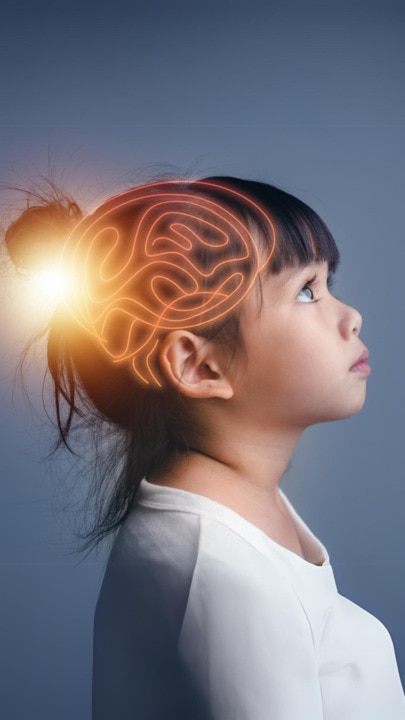Social media is impacting our childrens’ brains negatively, writes neuroscience strategist Jill Sweatman
With so many students becoming more anxious, distracted and sleep-deprived, this neuroscience expert is proposing parents implement these measures now, before it is too late.

We cannot plead ignorance any longer.
The academic and mental health results on the impact of social media on our young people are indisputable. The allure and compulsive overuse of social media by our children, of all ages, is having a profound effect on their brains.
The research is accumulating. The evidence is strong. The results are escalating. Countries are taking action.
Our children’s brains do not have the luxury of time. The foundations of brain development are programmed to occur at particular ages yet these are being delayed and the consequences are mounting.
Why are so many students failing to reach their potential and becoming increasingly more anxious, distracted and sleep-deprived? We have only to look at the decline in NAPLAN results and international PISA scores to see how, over time, ubiquitous screen use both at home and a heavy reliance in schools can be detrimental to academic performance.
Why is this?

We have stopped being diligent about devices in our children’s hands. And now the results are inescapable.
We need to start being accountable and stop blaming Covid-19 and schools for our distracted sons and daughters.
We must return control to our own families and establish the values we wish our children to embody.
Are we genuinely serious about addressing this issue for our children’s sake and that of generations to come? If so, this calls for significant measures, not tokens, that will change the trajectory of the alarming statistics on mental illness and worsening academic performance.
I propose delaying access to smartphones until our children are at least in Year 8 and avoiding access to social media sites like Instagram and TikTok until 18 years of age.
My opinion is based on sound neuroscience evidence.
The effects on the brain are measurable. Scans of the brains of children who use social media intensively and for an extended period reveal a change in the density of the brain – less white matter and less grey matter.


The compulsion to scroll, click and remain absorbed in yet another video is changing the structure of the brain at the expense of the crucial executive part which regulates focus and attention, self-control of behaviour and emotion, reasoning and decision making.
If every parent knew this, surely, they would not readily hand their child a smartphone.
Give your child a cognitive advantage – for life – by having the courage to delay smartphone access.
Children cannot legally smoke nor drink alcohol before the age of 18 years because we know these effect brain development. Yet we hand our children a smartphone with unlimited access to the internet opening a portal to the world, instantly.
The immediate solution lies with us – first. We cannot delegate the level of parenting required to establish the values and standards of behaviours for digital use. Diligent digital supervision must be a top priority in every home.
Many of our children are teetering on the tip of an iceberg in no danger of melting. Globally, our family and community climates must change – without delay.
Be prepared for pushback. This confirms that you are on the right track and all the more reason to be persistent. Are you willing to sacrifice popularity and what is easy, for your child’s future?
Is it time to have this courageous conversation about social media use with your family, before it’s too late?
Are you prepared to be accountable for your child’s overuse of social media?
If not now, when?
Jill Sweatman is a neuroscience strategist in learning & development.
More Coverage
Originally published as Social media is impacting our childrens’ brains negatively, writes neuroscience strategist Jill Sweatman




